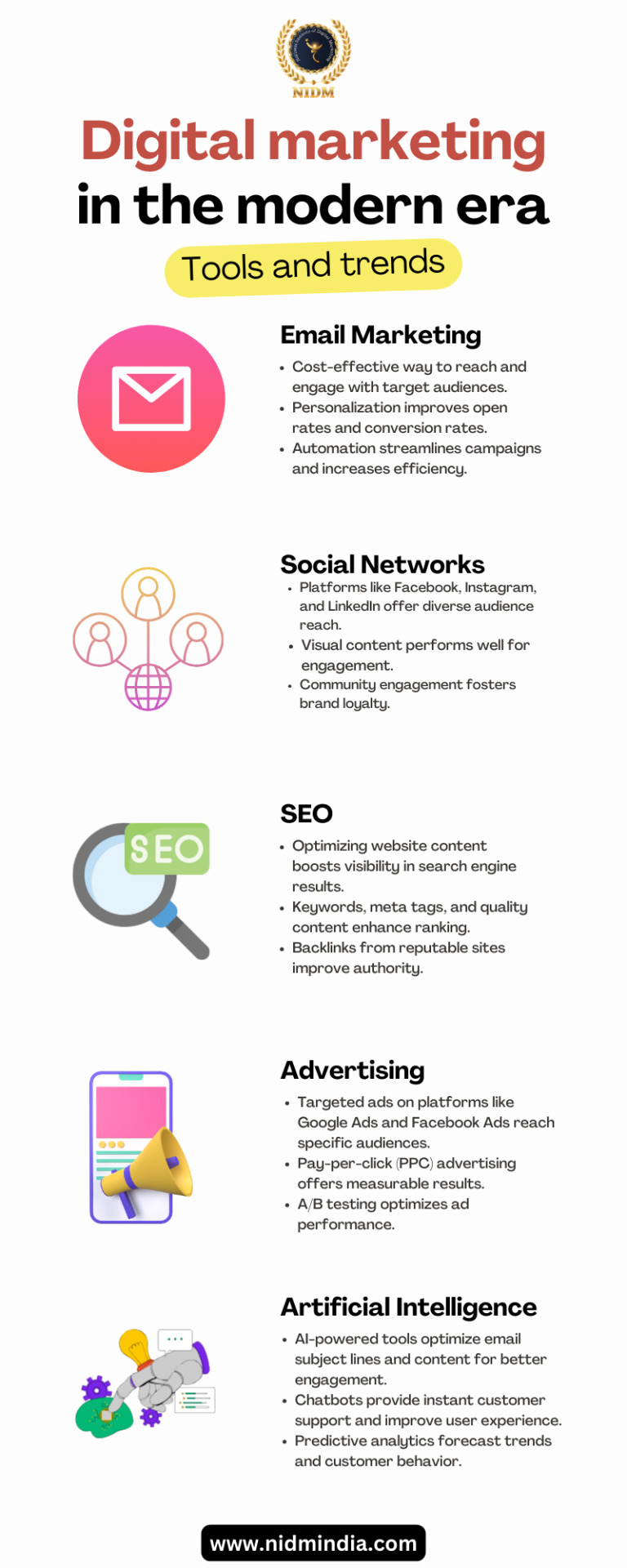Text
Shielding Your Brand: The Power of Privacy Protection in Digital Marketing
In today's digital world, the protection of privacy has emerged as a critical concern for both consumers and businesses alike. With the exponential growth of data collection and online interactions, safeguarding personal information has become paramount. Digital marketers, in particular, must recognize the importance of privacy protection not only as a legal obligation but also as a strategic imperative for building trust and credibility with their audience.

This comprehensive article will delve into the multifaceted aspects of privacy protection in digital marketing, exploring its significance, implications, and best practices for brands to shield themselves and empower their customers.
Understanding the Importance of Privacy Protection:
In an era characterized by data breaches and privacy scandals, consumers are increasingly vigilant about how their personal information is being collected, stored, and used by businesses. Privacy protection transcends mere compliance with regulatory
requirements; it embodies a fundamental respect for individuals' rights to control their own data. Digital marketers must grasp the ethical implications of data handling and adopt transparent practices to cultivate trust among their target audience.
Building Trust and Credibility:
Trust is the cornerstone of successful relationships, whether in personal interactions or business transactions. In the realm of digital marketing, where brands strive to establish meaningful connections with their customers, trust becomes even more crucial. By prioritizing privacy protection, brands signal their commitment to respecting the privacy and confidentiality of consumer data. This proactive approach not only differentiates them from competitors but also enhances their credibility in the eyes of consumers, fostering loyalty and long-term relationships.
Mitigating Risks and Enhancing Reputation:
The repercussions of privacy breaches can be severe, ranging from financial losses to irreparable damage to brand reputation. As custodians of customer data, digital marketers must implement robust security measures to safeguard sensitive information
from unauthorized access or exploitation. Additionally, compliance with privacy regulations such as GDPR (General Data Protection Regulation) and CCPA (California Consumer Privacy Act) is essential to mitigate legal risks and maintain a positive brand
image. By investing in comprehensive data protection strategies, brands can not only protect themselves from potential liabilities but also strengthen their reputation as responsible stewards of consumer privacy.
Implementing Best Practices for Privacy Protection:
Effective privacy protection requires a holistic approach that encompasses both technological solutions and organizational policies. Encryption, firewalls, and multi-factor authentication are essential tools for securing data against external threats. Moreover,
internal protocols for data access and handling, as well as regular audits and assessments, are critical for ensuring compliance and identifying potential vulnerabilities. Transparency and communication are also key components of a robust privacy
protection strategy, as brands should inform consumers about their data collection practices and provide options for consent and opt-out.
Nurturing Customer Relationships Through Privacy Protection:
Beyond mere compliance with regulations, privacy protection can serve as a catalyst for building stronger bonds with customers. By demonstrating a genuine commitment to
safeguarding their privacy, brands can instill confidence and peace of mind among their audience, encouraging greater engagement and loyalty. Moreover, proactive communication about privacy measures can foster transparency and accountability, fostering a sense of partnership and trust between brands and consumers.
Leveraging Personalization While Respecting Privacy:
Personalized marketing strategies, such as targeted advertising and recommendation engines, rely heavily on consumer data to deliver tailored experiences. However, striking the right balance between personalization and privacy is essential to avoid alienating
customers or compromising their trust. Digital marketers must employ data anonymization techniques and adhere to strict privacy guidelines to ensure that personalized campaigns are conducted ethically and responsibly.
Embracing Privacy by Design Principles:
Privacy should not be an afterthought in the development of digital marketing initiatives; it should be integrated into the design process from the outset. By adopting privacy by design principles, brands can proactively address privacy concerns and minimize the risk
of data breaches or privacy violations. This approach involves conducting privacy impact assessments, implementing data minimization practices, and incorporating privacy-enhancing technologies into digital infrastructure.
Educating Consumers About Privacy Rights and Choices:
Empowering consumers with knowledge about their privacy rights and options is essential for fostering transparency and trust in digital marketing practices. Brands should provide clear and accessible information about data collection practices, consent
mechanisms, and privacy preferences. Additionally, offering tools such as privacy dashboards or preference centers allows consumers to exercise control over their personal information and tailor their online experiences according to their preferences.
Conclusion:
Privacy protection is not just a legal requirement; it's a strategic imperative for brands operating in the digital realm. By prioritizing the security and confidentiality of consumer data, businesses
can shield themselves from potential risks while strengthening their relationships with customers. Trust, credibility, and reputation are invaluable assets in today's competitive market,
and privacy protection serves as the foundation for nurturing these essential qualities.
As digital marketers navigate the complexities of data-driven strategies, they must uphold ethical standards and prioritize privacy as a core value. By embracing privacy protection as a guiding principle, brands can not only safeguard their own interests but also empower their customers with control over their personal information. In doing so, they can forge stronger connections,
inspire loyalty, and thrive in an environment of trust and integrity.
learn more from the best digital marketing courses in banglore
#digital marketing#best course in banglore#seo#privacy policy#online privacy#internet privacy#data privacy
0 notes
Text
The Power of Voice Search Optimization: A Game-Changer in Digital Marketing
In the ever-evolving landscape of digital marketing, staying ahead of the curve is paramount for businesses striving to connect with their audience effectively. One of the most significant shifts in recent years has been the rise of voice search technology. With the proliferation of voice-activated devices like smart speakers and the integration of voice search functionality into smartphones, consumers are increasingly turning to voice commands to search for information, make purchases, and interact with brands.

In this blog, we'll delve into the realm of voice search optimization, exploring its significance in the digital marketing ecosystem and uncovering strategies to leverage its power effectively.
Understanding Voice Search Optimization:
Voice search optimization involves tailoring digital content and marketing strategies to align with the way people speak rather than type their queries. Unlike traditional text-based searches, which often consist of short keywords or phrases, voice searches tend to be more conversational and natural-sounding. This shift in search behavior necessitates a reevaluation of SEO (Search Engine Optimization) practices and content creation strategies.
Long-Tail Keywords: Voice searches are typically longer and more specific than text-based searches. Incorporating long-tail keywords that mimic natural language patterns can help improve visibility in voice search results.
Question-Based Queries: Voice searches often take the form of questions ("What are the best restaurants nearby?"), so optimizing content to address common questions related to your industry or business can enhance visibility.
Local SEO: Voice searches frequently have local intent, such as finding nearby businesses or services. Optimizing for local SEO, including claiming your Google My Business listing and ensuring accurate NAP (Name, Address, Phone Number) information, is crucial for appearing in local voice search results.
Featured Snippets: Google often pulls information from featured snippets to provide direct answers to voice search queries. Structuring content to appear as featured snippets can increase the likelihood of being chosen as the voice search result.
Mobile Optimization: Since voice searches are commonly performed on mobile devices, ensuring a mobile-friendly website with fast load times and easy navigation is essential for capturing voice search traffic.
The Impact of Voice Search on Digital Marketing: The proliferation of voice search technology has profound implications for digital marketers. By understanding and adapting to the nuances of voice search optimization, businesses can gain a competitive edge and enhance their online visibility.
Here are some ways voice search is reshaping the digital marketing landscape:
Enhanced User Experience: Voice search offers a more convenient and intuitive way for users to access information, making it essential for brands to optimize their content for this emerging medium. By providing accurate and relevant answers to voice queries, businesses can deliver a seamless user experience and foster customer satisfaction.
Opportunities for Local Businesses: Voice search has significant implications for local businesses, as it often leads to location-specific queries ("Where is the nearest coffee shop?"). By optimizing for local voice search, businesses can attract nearby customers actively seeking products or services in their area.
Shift in Keyword Strategy: The rise of voice search necessitates a shift in keyword strategy from short, generic keywords to longer, more conversational phrases. Marketers must adapt their SEO tactics to reflect the natural language patterns used in voice queries, thereby improving their chances of appearing in voice search results.
Rise of Voice Commerce: Voice commerce, or v-commerce, is on the rise, with consumers increasingly using voice assistants to make purchases.
Businesses can capitalize on this trend by optimizing product listings and implementing voice-enabled purchasing capabilities to streamline the buying process.
Conclusion:
Voice search optimization represents a paradigm shift in the way consumers interact with digital content and search for information online. By embracing this emerging technology and implementing effective optimization strategies, businesses can position themselves for success in the voice-driven era of digital marketing. From
leveraging long-tail keywords and question-based queries to optimizing for local SEO and featured snippets, the opportunities for enhancing visibility and engagement are
vast.
As voice search continues to gain momentum, marketers must stay attuned to evolving consumer behaviors and preferences. By staying ahead of the curve and prioritizing voice search optimization in their digital marketing strategies, businesses can seize the opportunities presented by this transformative technology and connect
with their audience in more meaningful ways than ever before.
Learn More about Digital Marketing
0 notes
Text

Best Digital Marketing Courses
0 notes
Text
Digital Marketing Course In Bangalore
0 notes
Text

https://nidmindia.com/
#digital marketing#seo#emailmarketing#wordpress#smmarketing#ppc#search engine optimization#socialmediamarketing
1 note
·
View note